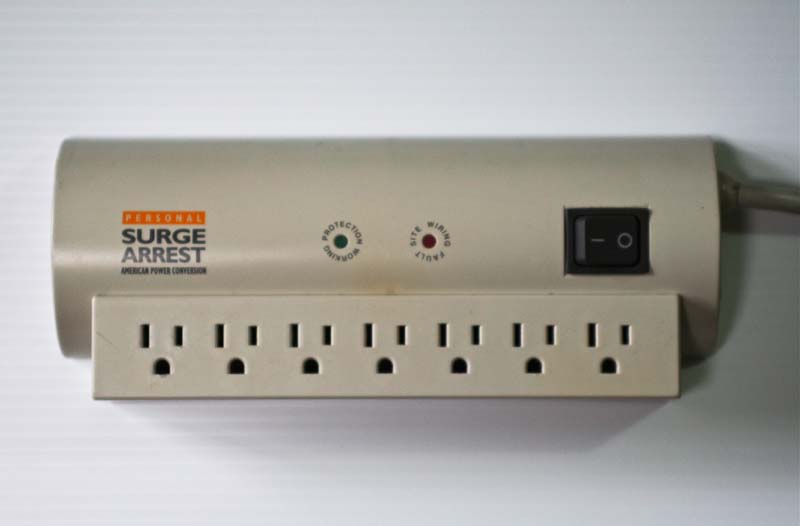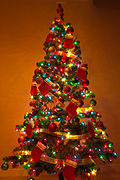Posts Tagged ‘fires’
Household Safety: Check Old Appliances Before Winter
 Now, as we head into winter, is a good time to test your home’s smoke alarms, check your appliances and inspect your electrical outlets and cords.
Now, as we head into winter, is a good time to test your home’s smoke alarms, check your appliances and inspect your electrical outlets and cords.
First, a good resource is the Consumer Product Safety Commission (CPSC) website, where you can search for recall news about products you may own. Recently, there have been several recalls involving products posing serious fire hazards.
One example is Schneider Electric IT Corp. recalled 15 million APC Surge Arrest surge protectors in early October. This followed 700 reports of property damage, including $916,000 in fire damage to a home and $750,000 to a medical facility. Another 13 reports were injuries, including smoke inhalation and contact burns. Another example is Gree Electric Dehumidifiers, which recalled 2.2 million dehumidifiers in the U.S. last month, after its products caused 46 fires and $2.15 million in property damage.
You can review the CPSC website to make sure you have no recalled products in your home. You can also take a look around your home for faulty cords or products.
Preventing Home Fires in the Winter
During a typical year, there are over 26,000 home electrical fires in this country, according to the U.S. Fire Administration. December and January see the most electrical fires. We share a few tips for preventing these fires:
1) Check your smoke alarms before the season.
2) Regularly check your electrical appliances and wiring. Replace any old or damaged cords; do not try to repair them.
3) Replace any appliance you feel may not work properly. If you do not want to replace it, call a repair service or visit the store where you purchased the product. Check electric space heaters every year as a rule.
4) Buy appliances which have the label of a recognized testing laboratory, such as UL.
5) Avoid using extension cords.
6) Use only surge protectors or power strips that have internal overload protection and have been tested by a national laboratory.
7) Keep clothes and flammables at least three feet away from all portable electric space heaters.
8) Use light bulbs that match recommended wattages for lamps.
9) Bring in an electrician if you are experiencing flickering lights or other problems.
Related:
Electrical Home Fire Safety, U.S. Fire Administration
Schneider Electric Recalls APC Surge Protectors Due to Fire Hazard, Consumer Product Safety Commission.
Read More
Decorating Safely for the Holidays
 While it is the most wonderful time of the year, the holiday season is also a prime time for home fires.
While it is the most wonderful time of the year, the holiday season is also a prime time for home fires.
In Massachusetts, from 2002 to 2007, Christmas Day saw the second most number of residential fires of any day while Christmas Eve ranked ninth, according to the Office of the State Fire Marshal. The majority of these fires can be prevented with planning and awareness.The Boston injury lawyers at Breakstone, White & Gluck offer these tips to help you and your family enjoy the season safely:
Christmas Tree Watering
- Do not pick up your Christmas tree immediately after Thanksgiving.
- Make sure you have an adequate size tree water stand.
- Learn how much watering your tree needs. In general, you should use one quart of water per day for each stem diameter. Ask your local fire department for more instructions.
- Remove your tree in a timely manner to avoid letting it dry out. Many communities offer special Christmas tree pickups after the holiday.
- Another option is to cut up your tree branches and place them over a garden.
- Do not leave your tree outside unattended overnight for teenagers and vandals to find.
Christmas Tree Holiday Lights
- Keep your tree at least three feet away from flame or heat sources, such as fireplaces and radiators. These pose a fire risk and will dry out your tree faster.
- Never put candles on or near your tree.
- Check your Christmas tree lights for broken bulbs. If one is damaged, remove the whole string to avoid a fire accident.
- Make sure your Christmas tree lights are designed for indoor use.
- Unplug Christmas tree lights when you leave the house or go to bed.
- Check if your Christmas tree lights have been tested for safety by a nationally recognized laboratory. If they have, they will be marked ETL, UL or CSA.
- Do not put too many lights on your tree. Check the box for the appropriate number of strings.
- Place your tree near a power outlet to reduce use of extension cords. Make sure extension cords have been marked UL to show they have been tested.
- If you have an artificial tree, check to see if it has the label “Fire Resistant.”
Holiday Candles
- Use sturdy candle holders with flame-protective and non-combustible shades or globes.
- Never leave burning candles unattended.
- Place burning candles in the center of tables.
- Place burning candles at least four feet away from curtains, bedding and other flammables.
- Keep candles and matches away from children.
- When lighting candles, secure hair and clothing away from candles to prevent injuries.
- If you are lighting multiple candles, make sure you are aware of how much heat they generate.
Cooking a Safe Thanksgiving Dinner
 At Thanksgiving, the focus is on enjoying good food and family. But attention must also be paid to fire safety because Thanksgiving sees more residential fire deaths, injuries and property damage than any other day of the year.
At Thanksgiving, the focus is on enjoying good food and family. But attention must also be paid to fire safety because Thanksgiving sees more residential fire deaths, injuries and property damage than any other day of the year.
These fires are preventable with solid planning and good communication among those who are preparing the meal and others in the home. The Massachusetts personal injury lawyers at Breakstone, White & Gluck of Boston offer these tips to keep your holiday safe:
- Never leave food cooking unattended. If you have to leave the kitchen, turn the stove off or ask someone to watch the food.
- Make sure you have properly working smoke alarms near your kitchen.
- Keep oven mitts, wooden utensils, towels and other materials away from the stovetop.
- Use a timer to remind you when to stop cooking.
- Avoid using candles, especially near young children.
- Make sure cords to electrical tools and appliances, such as electric knives, are not dangling within reach of a child.
- Make sure children stay away from liquids and soft foods such as gravy and vegetables until they cool down. If these foods are too hot, they can cause skin burns.
What To Do If You Have A Cooking Fire
Keep a small fire extinguisher handy in your kitchen, either under the sink or close by in a closet. Inspect it periodically and make sure it is properly charged. If you have a cooking fire, it is best to call 911, wait outdoors for the fire department.
If it’s an oven fire, turn off the heat and keep the door closed. For small grease fires, smother the fire by sliding the lid over the pan and turning off the stove top. Leave the pan covered until it is cool. Never use water to extinguish a grease fire. You could be badly burned.
If you try to put out the fire, be sure everyone else is out of the home and you have a clear exit path.
Read More
Think Space Heater Safety
As the cold weather makes its return to Massachusetts, many people are bringing out the portable space heaters.
Always practice caution when using space heaters. Each year, space heaters cause death, injury and substantial property damage in both Massachusetts and across the country.
In 2007, U.S. fire departments responded to 66,400 home structure fires that involved heating equipment, according to the National Fire Protection Association. These fires killed 580 people, injured another 1,850, and were responsible for $608 million in direct property damage.
In Massachusetts, there were 57 space heater fires between 2004 and 2008, according to the Office of the State Fire Marshal. One in every six space heater fires caused a fatality.
The leading cause of space heater fires is when the appliance gets too close to combustible materials, such as furniture, carpeting or bedding. Other space heaters are also defective, improperly made and should never have been sold to consumers.
If you are using a space heater this winter:
- Keep the space heater at least three feet away from flammable items, such as rugs, curtains, blankets or clothing.
- Use a space heater to supplement your furnace. A space heater should not be your primary source of heat. If you are worried about having your heat shut off, learn more about the state’s Utility Shutoff Protection program.
- Do not leave a space heater in a room unattended while it is turned on or plugged in.
- Take caution not to use a space heater when you are sleepy. Many fires happen when someone falls asleep near a space heater.
- Do not allow small children near a space heater.
- Do not use an extension cord with your space heater. Many space heater fires start when an extension cord ignites a carpet, rug or wood floor. If an extension cord is needed, use one that is new and rated by the Underwriters Laboratory at 16-gauge or thicker.
- Purchase a space heater with an automatic shut off. This will stop the device from working if tipped over.
- Inspect your space heater for cracks and broken parts. If you see a problem, replace it before using.
For more information on space heater safety, visit the National Fire Protection Association’s website. We also urge you to check regularly to see if your space heater has been recalled. You can search for your model on the recall section of the Consumer Product Safety Commission website. If you don’t find anything, try a simple Google search. Space heaters are regularly recalled, as are other devices. Manufacturers make design mistakes, or errors are made somewhere along distribution. Other times products are marketed incorrectly. Even if you register products with the company, you really have to be proactive and search for product recalls yourself to protect your family. We should not have to check; manufacturers have a responsibility to fully test products before making them available to consumers. Because this does not always happen, it’s important to check for space heater recalls on your own.

